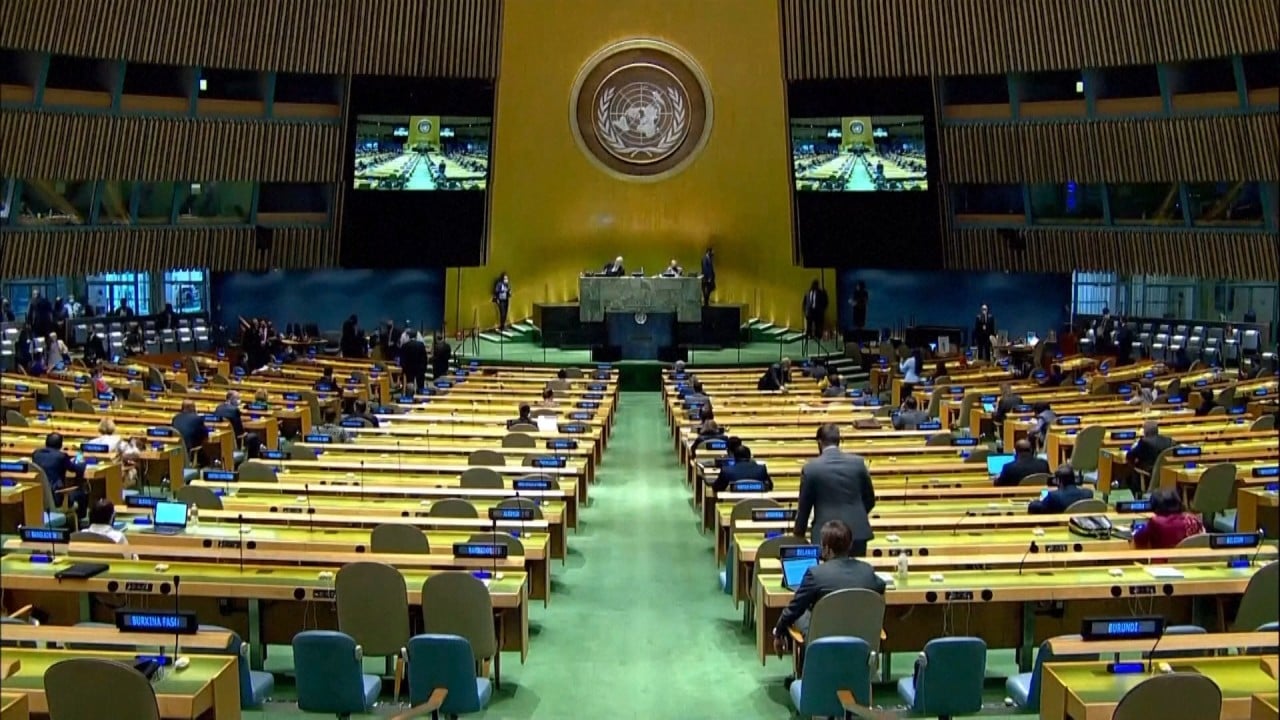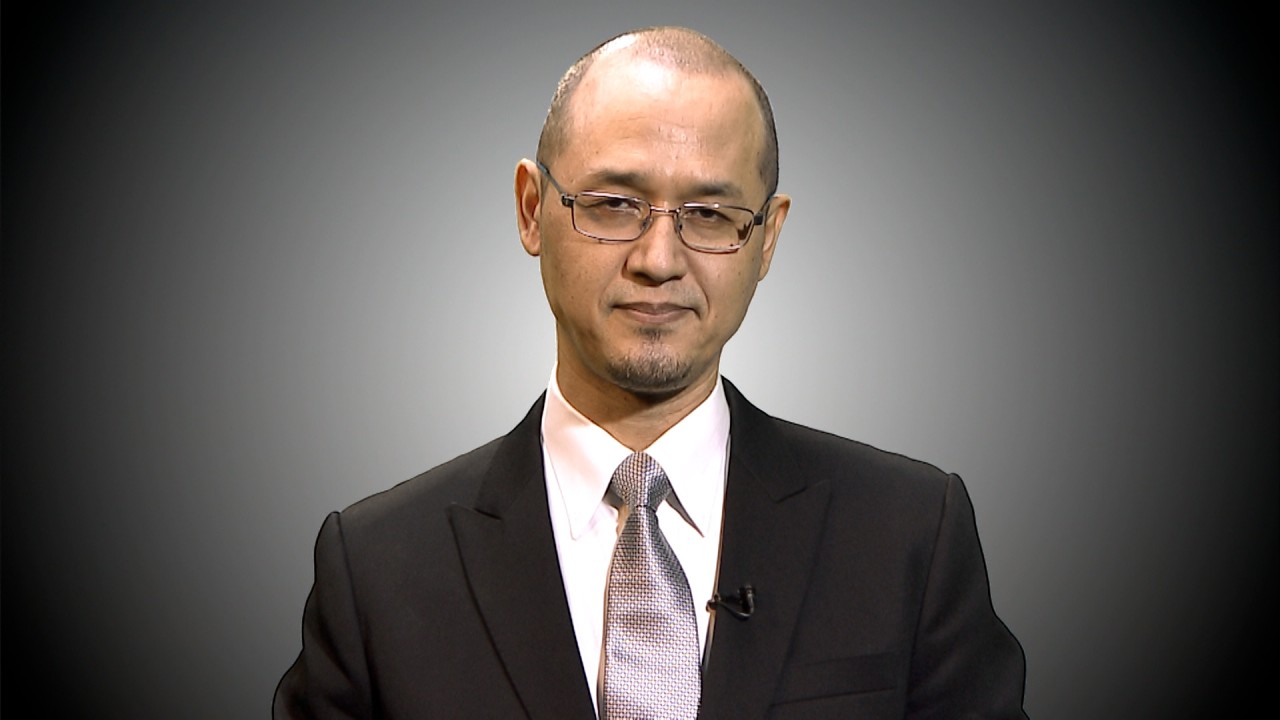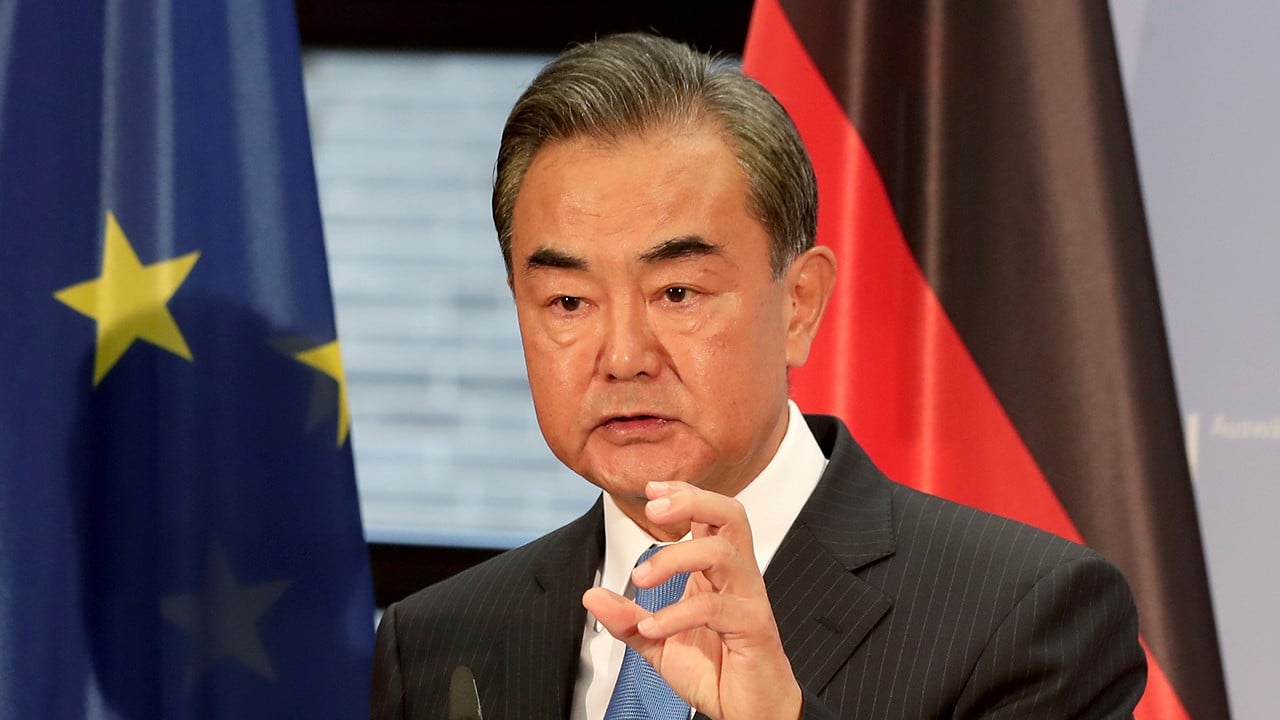
Why China’s dreams of global leadership are fading fast
- China projects a narrative of being a benevolent and empathetic global leader but, domestically, the narratives coalesce more around nationalist assertions of China as a growing international power
- Reconciling this ‘two-level game’ at the heart of its foreign policy is vital
The Pew data is corroborated by another recent study, by the European Council on Foreign Relations, which found that 48 per cent of EU citizens surveyed have a worse view of China since Covid-19. Studies by Gallup, YouGov, and the Institute for Global Change all paint a similar picture: global perceptions of China are increasingly negative.

03:02
Trump and Xi trade barbs over Covid-19 as world leaders voice fears at UN’s 75th General Assembly
However, for China to be capable of reshaping the international order, it needs to have partners that share its vision. International order is built through developing strong friendships with prominent powers that encompass not only strategic and normative alignments but also cultural understanding as well as strong historical foundations.
Some of this is beyond China’s control. Its status as a non-Western rising power means that whatever it does, it will be viewed with suspicion by outsiders (especially in the current West-centric order).

03:24
Are Australians really unsafe in Hong Kong?
Although increasing Sinophobia is a popular argument in China for why its international actions are viewed with suspicion, Beijing’s own actions also account for much of the problem.
From Singapore to Sweden, China’s influence campaign is backfiring
Initially, China’s “mask diplomacy” seemed to strike a chord, particularly in Italy, Spain and Serbia. It looked like China was stepping up as a global leader and helping countries when the European Union and the US were failing to do so.
It led to moments such as Serbian President Aleksandar Vucic publicly kissing the Chinese flag, and people in Rome singing thanks to China from their balconies during lockdowns.

04:45
China’s most-senior diplomats, Wang and Yang, conclude back-to-back visits to Europe
While China’s inability to use the pandemic as a springboard to stake its claim for global leadership is partly down to a lack of international credibility, it also helps to illustrate China’s challenge in navigating the “two-level game” at the heart of its foreign policy.
According to American political scientist Robert Putnam, a state must balance the game it plays with its population (that is, domestic politics) and the game it plays with other countries (international interactions).

02:13
‘South Park’ creators issue mocking ‘apology’ after China reportedly bans animated sitcom after an episode on Beijing censorship
One example of how China’s domestic pressures can negatively affect its reputation is the phenomenon of “hurt feelings”: the Chinese public’s inclination for a knee-jerk outcry against perceived foreign transgressions.
Ultimately, if China wants to reinvigorate its push for global leadership, it needs international partners that share its vision of international politics and order. But winning over international audiences and elites is only one of the challenges – convincing its domestic audience is just as important.
Until China can bridge its international and domestic games, any aspirations of global leadership will continue to falter.
Nicholas Ross Smith is an associate professor of international studies at University of Nottingham Ningbo China

